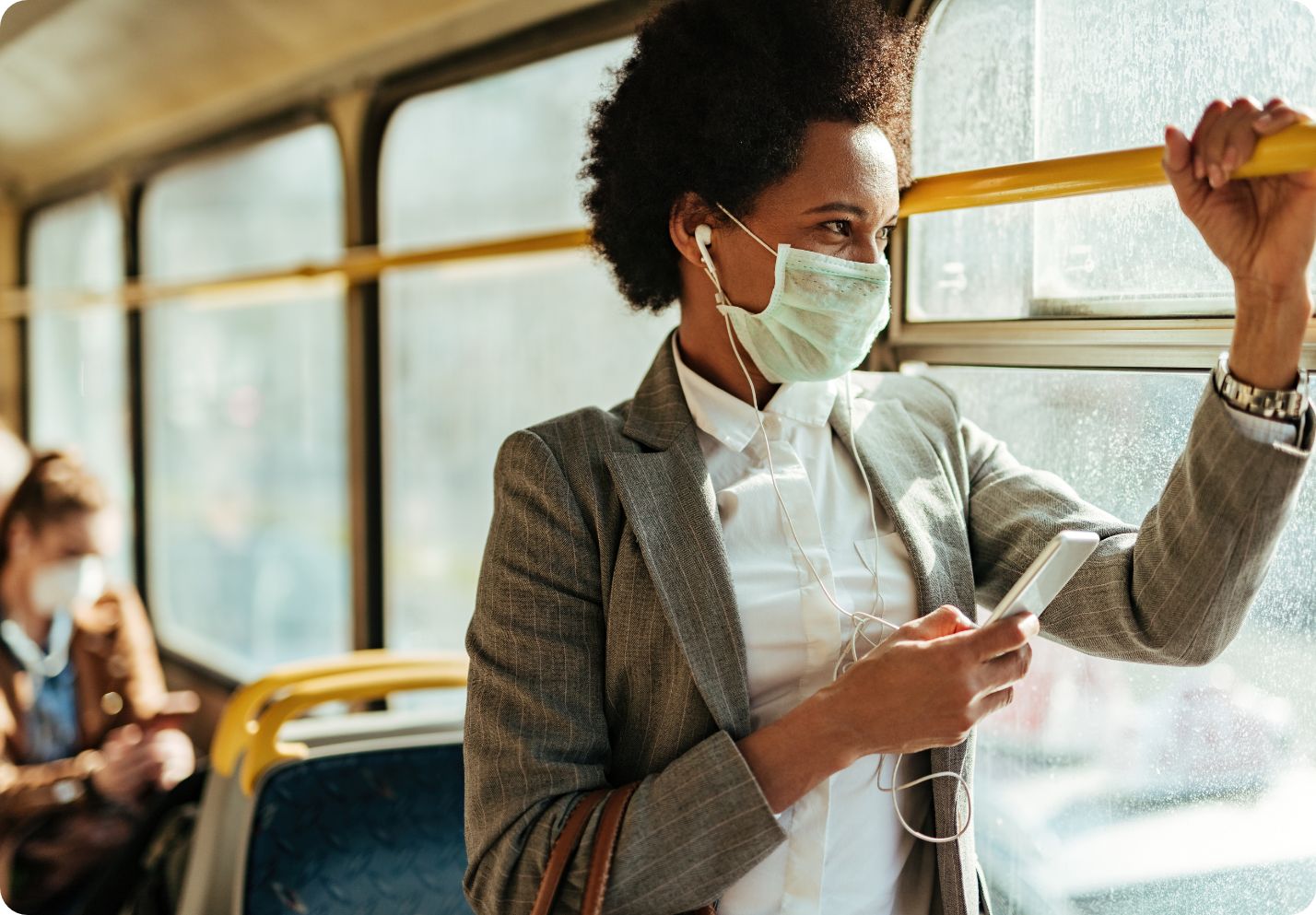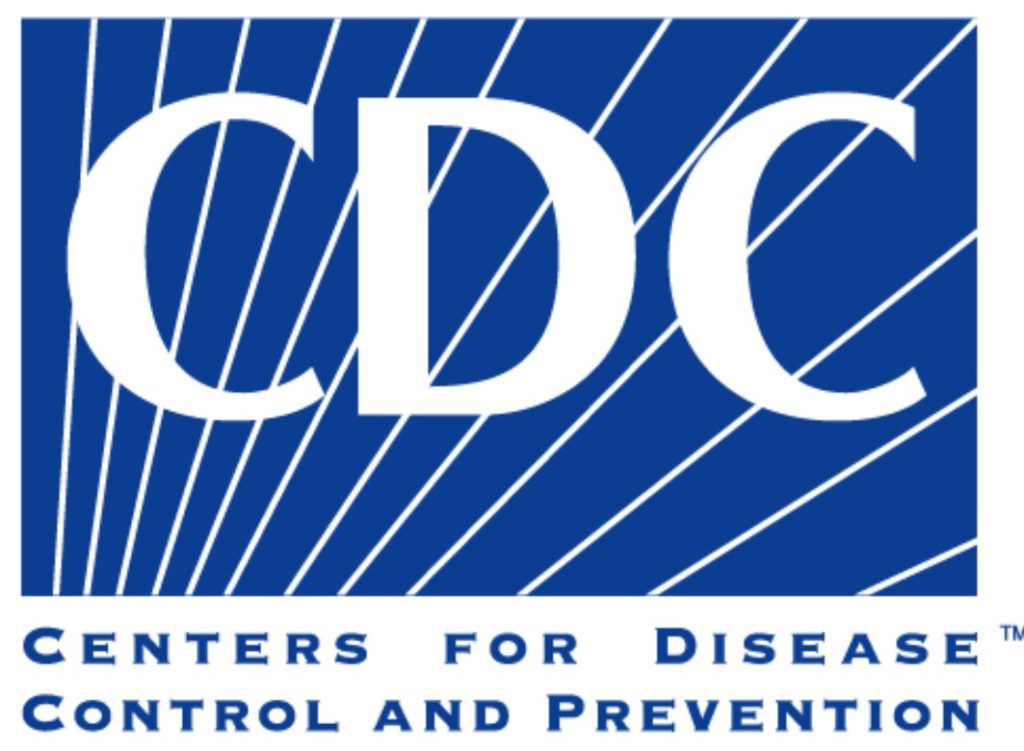Your COVID-19 resource center
Your COVID-19
Resource Center
COVID-19 Vaccines
Here’s what you need to know:
There are three COVID-19 vaccines being administered in the U.S. Recent research has demonstrated that the mRNA vaccines (Pfizer and Moderna) are the most effective against the Delta and Omicron variants and have fewer risk of side effects than the viral vector vaccines (J&J/Janssen). The Centers for Disease Control and Prevention (CDC) now recommends individuals be offered mRNA vaccines over the viral vector vaccines (you can read more about this here).
Pfizer-BioNTech
VACCINE TYPE:
mRNA
ELIGIBLE AGE:
5 years and older
DOSES:
Two shots given three to eight weeks apart
A third dose is available for those that are 18+ and immunocompromised, given 28 days after the second dose
A booster dose should be administered to everyone ages 12+, given at least five months after the second dose
Adults ages 50+, immunocompromised individuals ages 12+ or anyone who received the Johnson & Johnson vaccine for both their primary dose and booster can receive a second booster shot at least four months after their first booster
Moderna
VACCINE TYPE:
mRNA
ELIGIBLE AGE:
18 years and older
DOSES:
Two shots given four to eight weeks apart
A third dose is available for those that are 18+ and immunocompromised, given 28 days after the second dose
A booster dose should be administered to everyone ages 18+, given at least five months after the second dose
Adults ages 50+, immunocompromised individuals ages 12+ or anyone who received the Johnson & Johnson vaccine for both their primary dose and booster can receive a second booster shot at least four months after their first booster
Johnson & Johnson / Janssen
VACCINE TYPE:
Viral vector
ELIGIBLE AGE:
18 years and older
DOSES:
One shot with a booster at least two months after the first dose
Anyone who received a J&J vaccine for their first dose and booster may receive a second booster at least four months after their first booster
Adults ages 50+ and immunocompromised individuals ages 12+ can choose to receive a second booster at least four months after their first booster, regardless of what type of booster they received initially
Protecting you from COVID-19
Getting vaccinated is the best way to stay protected against serious COVID-19 illness. If you need to get your vaccine or are due for a booster, contact your wellness center directly. They may offer the COVID-19 vaccines, or they can recommend where to get one if not. Your care team can also provide guidance and support around the vaccine types, booster schedules, eligibility and testing.
We hear you and are here for you.
Additional resources for you and your family
We know that the COVID-19 pandemic has created hardships for many. At Premise Health, we care about your wellbeing and want you to have the resources you need to live better. That’s why in addition to providing inclusive, quality care, we’re dedicated to helping you find the assistance you need to make sure nothing is getting in the way of your health and wellbeing. Whether you need help with food, transportation or paying your bills, we can help connect you with a variety of free or reduced-cost community programs in your area.
Visit findhelp.premisehealth.com to learn more.
Get the facts.
Getting your COVID-19 vaccine
If you’re ready to get your vaccine, be sure to make your Premise Health wellness center your first stop.
Check with your center to see if they have the COVID-19 vaccine.
Use this opportunity to ask your provider any additional questions you may have about the vaccine.
Schedule your appointment to get the vaccine.
You can call your center directly or contact your provider through your My Premise Health account on the My Premise Health app or online at mypremisehealth.com. If you’re unsure where to find information about your wellness center or how to contact them, ask your employer for more information.
If your center does not have the COVID-19 vaccine, you can also visit www.vaccines.gov to find a COVID-19 vaccine near you. Your Premise Health provider can help you with timing your doses and booster shots, as well as answer any other questions you may have about getting your vaccine.
Preparing for your vaccine:
Reference our FAQs below or the CDC’s website for more information on all the authorized and approved vaccines and how they work.
Make sure to check with your vaccination site or your appointment confirmation message about what identification you may need to bring to your appointment.
You should not “pre-medicate” with pain relievers or other medications before getting your COVID-19 vaccine. However, you may take over the counter pain relievers after your vaccine if needed, and you should not stop taking any daily medications on the day of your vaccine appointment without talking to your healthcare provider first. Consult your provider or pharmacist for further guidance.
You can get other vaccines at the same time as your COVID-19 vaccine. You can get other vaccines, such as the flu shot, at the same time as your COVID-19 vaccine. Visit our flu resource page and talk to your provider about your vaccination schedule.
After your vaccine:
You’ll need to wait at least 15 minutes after your vaccine to be monitored for any allergic reactions.
If you need a second or third shot because your vaccine requires multiple doses, be sure to schedule your next appointment within the recommended timeframe.
You will get a vaccination card that shows what vaccine you received, the date you received it and where. Keep this card, as you may need it for future use.
You may experience mild to moderate, temporary side effects such as:
• Pain, redness and swelling at the injection site
• Tiredness
• Headache
• Muscle pain
• Fever & chills
• Nausea
Life after you’re fully vaccinated
According to the CDC, you’re considered fully vaccinated two weeks after the final dose of your primary series of the COVID-19 vaccine (i.e., one dose of J&J or two doses of an mRNA vaccine). If you’ve received all the recommended vaccines, including any booster dose(s) when eligible, you’re considered “up to date”. The CDC has put out detailed guidelines for what you can start to do once you’re fully vaccinated, but here are a few highlights:

Fully vaccinated people can:
Safely resume pre-pandemic activities, while following local laws, rules or regulations (restrictions may vary at your workplace, local businesses and in healthcare settings)

Fully vaccinated people do not have to:
Get tested or self-quarantine before or after traveling within the U.S. unless experiencing COVID-19 symptoms
Get tested or self-quarantine before international travel unless the destination requires it, however, a negative test result is still required before coming back into the U.S.

Vaccinated and unvaccinated people should continue:
Wearing a mask while indoors in public if you are in an area of substantial or high transmission, on all forms of public transportation and where required by local law.
Those who are not vaccinated should continue to take the precautions set forth by the CDC, which may include wearing a mask while in public, social distancing when gathering with people from multiple households, washing their hands often and avoiding large crowds.
For more information or guidance on safe activities or protocols after you’ve been vaccinated, reach out to your provider at your local wellness center.
What to do if you’re exposed or test positive for COVID-19
Although the vaccines are highly effective, it is possible to have a breakthrough infection after you’ve gotten your shot. Protect yourself and others by following the CDC’s guidelines on testing and isolation.
In the end, vaccination is still your best protection. Adults who are unvaccinated have a five times higher risk of COVID-19 infection compared to adults who are fully vaccinated and boosted.
If you are up to date on your COVID-19 vaccine and boosters:
- You do not need to quarantine or stay home, but you do need to limit any further contact with the person who exposed you to the virus
- Get tested for COVID-19 five days after being exposed to someone who has the virus, even if you don’t have symptoms
- Wear a mask around others for 10 days
- Watch for COVID-19 symptoms, and if you get symptoms, isolate
If you are unvaccinated or you are vaccinated but have not had a booster and it’s been over five months since you received an mRNA vaccine or two months since the J&J vaccine:
- Quarantine at home for five days and wear a mask when around others, even those in your home, for a total of 10 days
- Limit contact with the person who exposed you to the virus
- Get tested five days after your last exposure
- Watch for COVID-19 symptoms, and if you get symptoms, isolate
- Isolate at home for five days
- If you have no symptoms or your symptoms are resolving after five days, you can leave your home but be sure to wear a mask around others for an additional five days
Get a COVID-19 test mailed right to your door.
Even if you’re vaccinated it’s still important to get tested for COVID-19 when you think you may have symptoms or have been exposed to someone with the virus. That’s where we come in.
Home testing through your wellness center is an easy and more accurate way to get tested for COVID-19 from the comfort of your home.
Schedule a virtual visit* and your provider will determine if you need a test.
The test kit will be shipped to you within two business days.
You have the option to schedule a follow-up virtual visit so your provider can walk you through the self-collection.
Ship your specimen to the lab.
Once received by the lab, your results are available within 72 hours.**
It’s convenient, quick and reliable. If you think you have COVID-19, schedule your virtual visit today.
*To conduct a local virtual visit, you must be in the same state which your provider is licensed.
**If your test is ordered on a Friday after 2 p.m. CT. shipping could take up to four days. Turnaround time for results is subject to national trends and case surges.
COVID-19 Vaccine FAQs
Getting the COVID-19 vaccine:
Many Premise Health wellness centers have the COVID-19 vaccines and are doing their part to get our members vaccinated. Now that everyone over the age of 5 can get vaccinated, we plan to continue to obtain and administer the COVID-19 vaccines in accordance with federal, state and manufacturer guidelines. You should reach out to your local wellness center directly to see if it’s available and to schedule an appointment.
Regardless of if/when the COVID-19 vaccine is available at your wellness center, our staff will act as a valuable resource for guidance on the vaccine, as well as continued COVID-19 testing and support.
For the most part, those who are fully vaccinated can begin to resume most pre-pandemic activities. However, to maximize protection against the variants of the virus and to prevent spreading it to others, the CDC recommends that vaccinated individuals wear masks in public indoor spaces while in areas of substantial or high transmission. You can find a map that shows active transmission rates here: cdc.gov/coronavirus/2019-ncov/your-health/covid-by-county.html.
Fully vaccinated people will also need to continue to wear a mask while on public transportation, such as trains, planes and buses and where it is required by laws, rules, regulations or local guidance.
Note: If you received your vaccine but have a condition or are taking medications that may weaken your immune system, talk to your provider to discuss safety protocols. You may not be fully protected by the vaccine and may need to keep taking all the safety precautions to protect yourself from COVID-19. You may also be eligible for a fourth dose if you received an mRNA vaccine.
You likely will not be able to choose the vaccine you receive. It will depend on your local area and what is available there, based on what your state health department can order and distribute. It may also depend on what your local hospital, wellness center or pharmacy can accommodate. However, children ages 5 to 17 can only get the Pfizer vaccine, so those in that age range will only be able to get an appointment with a site that offers the Pfizer vaccine. While any of the three vaccines available in the US are effective, the mRNA vaccines have a better side effect profile and are more effective against the Omicron variant.
It is important to know that all the vaccines currently available in the U.S. are highly effective, safe and help prevent hospitalization and death from COVID-19.
Studies on COVID-19 vaccine safety in young children are still ongoing, so the CDC has not recommended those under the age of 5 get the vaccine at this time. It’s important to note that only the Pfizer-BioNTech vaccine has been authorized by the FDA and the CDC for children 12 years of age and older and a pediatric vaccine for children ages 5 to 11. The two other authorized vaccines from Johnson & Johnson and Moderna are still only approved for people 18 years and older.
Although the guidance was unclear at first, the CDC and the American College of Obstetricians and Gynecologists now recommend that all pregnant individuals get vaccinated. Pregnant individuals are at a significantly higher risk for complications from COVID-19, including hospitalization and risks to the pregnancy.
As of now, experts recommend that all other populations get the COVID-19 vaccine to help slow the spread and ultimately end the COVID-19 pandemic. If you are unsure if you should get vaccinated, talk with your healthcare provider.
Yes, people who have had COVID-19 are eligible to receive the vaccine and should do so. If you currently have COVID-19, you should wait until the end of your isolation period before you get your vaccine.
Yes, because your antibody development and protection against the virus is based on having two doses of the vaccine. For full protection, you need your second dose and should get it even if you had side effects after the first shot (unless your provider tells you otherwise).
If you received the Johnson & Johnson vaccine, which has only one dose, you are considered fully vaccinated two weeks after you receive it.
You are considered fully vaccinated two weeks after your second dose in a two-dose series and two weeks after a single dose vaccine.
Boosters are available for everyone 12 years and older who has had the J&J vaccine at least two months ago or five months ago for those who received two doses of Pfizer or Moderna. You are considered “up to date” with your COVID-19 vaccine if you have had your complete primary series and your booster, if eligible.
Adults over the age of 50 and immunocompromised individuals ages 12+ can also receive a second booster at least four months after their first booster.
Immunocompromised individuals qualify for both an additional mRNA dose and booster doses. Talk to your provider if you fall within this group.
Safety:
Yes. Although the authorizations were prioritized to expedite getting vaccines to the public, the standard safety trials and procedures were followed to ensure safety and effectiveness. The U.S. Food and Drug Administration (FDA) follows rigorous standards and will only give emergency use authorization (EUA) if the vaccine candidates meet their qualifications.
The FDA and CDC are also continuing to monitor the authorized vaccines as they’re being administered to the public to ensure continued safety and efficacy. In fact, the FDA has given full approval of the Pfizer-BioNTech COVID-19 vaccine for individuals 16 years of age and older and the Moderna COVID-19 vaccine for those 18 years of age and older. The Pfizer COVID-19 vaccine continues to be under EUA for individuals ages 5 to 15.
In certain types of emergencies, the FDA can issue what’s called an Emergency Use Authorization (EUA). This is used to provide timely access to critical medical products that may help during the emergency when there are no other options. The EUA standard may permit authorization based on less data than would be required for full approval, enabling the organization to authorize use within weeks rather than months to years. EUAs are in effect until the emergency declaration ends but can be revised or revoked as needs are evaluated during the emergency and new data becomes available.
An FDA-approved vaccine on the other hand, has undergone the agency’s standard process for reviewing medical products, including vaccines. The review process is extensive. In the case of the COVID-19 vaccines, FDA approval builds on the data and information that supported the EUA, such as preclinical and clinical data and information, in addition to details of the manufacturing process and inspections at the sites where the vaccine is made. The FDA’s review of this data is among the most comprehensive in the world.
Whether you have access to a vaccine with full approval or not though, you should get your COVID-19 vaccine as soon as possible, due to the continued surge of COVID-19 variants as the virus mutates. The available mRNA vaccines have proven effective at preventing severe symptoms and hospitalization.
Yes. The Pfizer-BioNTech vaccine has been authorized for children 5 years and older. Pfizer booster shots are also authorized for children over the age of 12 who received their first two doses at least six months ago. Studies have shown that it is safe and effective for children. Like adults, children may have some mild to moderate, temporary side effects after being vaccinated.
Although not as many children have gotten seriously ill from COVID-19 compared to adults, they can still get sick and spread the virus. With the Delta variant and more variants emerging, more children are getting seriously ill and being hospitalized at higher rates. That’s why it is important to get them vaccinated if they are eligible, to protect your family and others.
While mRNA vaccines seem new, researchers have been studying them for decades. They were a favorable choice for the COVID-19 vaccine because they can be created in a lab using readily available materials, which means they can be developed faster than more traditional methods of making vaccines. Basically, rather than triggering an immune response with a weakened or inactive virus, the mRNA vaccines teach our cells how to make a protein that triggers an immune response and helps produce antibodies against the SARS-CoV-2 virus to protect us from future infection.
Millions of Americans have been safely vaccinated against COVID-19. You can feel confident that getting vaccinated will protect you and those around you from the consequences of COVID-19.
No, your DNA is inside your cells. The vaccine components never enter your cells’ DNA and do not affect your genetic code.
No. All the vaccines available under the emergency use authorization (EUA) in the U.S. were tested in a diverse group of adults and children spanning different races, ethnicities and ages. There were no significant safety concerns identified in these or any other groups in the clinical trials.
Side effects:
Some participants in the clinical trials reported temporary, mild to moderate side effects after receiving their vaccine. The side effects were fairly similar to the flu vaccine and included pain at the injection site, fatigue, headache, fever and aching muscles and joints for a day or two.
In addition to the more common side effects listed above, there are rare cases of more serious side effects, such as neurological and cardiac conditions. The CDC has more information about these risks here: cdc.gov/coronavirus/2019-ncov/vaccines/safety/safety-of-vaccines.html. They have also provided healthcare providers and vaccine recipients, or their caregivers, with information about what to look for in the rare event that a person develops an adverse reaction.
In general, side effects to the vaccines are temporary and mild to moderate in nature. These side effects are preferable to the alternative of getting COVID-19, so they should not deter you from receiving the vaccine. These side effects are a sign that your immune system is doing exactly what it is supposed to do – working and building up protection to disease.
Of the tens of thousands of vaccine trial participants, there have been very few serious side effects reported. Some individuals have had allergic reactions to the vaccine, but it is extremely rare. As a precaution, you will be asked about any history of severe, life-threatening allergic reactions prior to being vaccinated. Everyone who receives the vaccine will be required to wait 15 minutes after vaccination for observation and 30 minutes if you have a history of anaphylaxis to ensure you do not have an unexpected, adverse reaction to the vaccine.
If you have a history of severe allergic reactions, particularly to vaccines, ask your provider for further guidance on whether you should get the COVID-19 vaccine.
Efficacy:
All the authorized and approved COVID-19 vaccines in the U.S. have been deemed highly effective at preventing COVID-19 after going through clinical trials. While no vaccine is 100% effective, you’re much less likely to get COVID-19 if you’ve had the vaccine. Also, it not only prevents you from getting sick or severely ill with the disease, but it might also protect those around you.
It’s also important to note that the vaccine may prevent severe illness and long-term symptoms of COVID-19 if you get it. This is important, because even young survivors who were physically fit prior to getting COVID-19 have reported lingering symptoms months after infection. This is called post-acute COVID-19 syndrome (PACS for short). PACS symptoms can include fatigue, difficulty breathing, cough, joint pain, chest pain, cognitive impairment, depression, muscle pain, headache, fever and heart palpitations. More serious complications of COVID-19 can include heart disease, acute kidney injury, rash, hair loss, smell and taste dysfunction, sleep dysregulation, depression, anxiety and changes in mood.
Yes, there is a chance you could still get COVID-19 after receiving the vaccine because even though the authorized COVID-19 vaccines are highly effective, no vaccine is 100% effective. Even though you could potentially still get the virus, you’re much less likely to get it if you’ve had the vaccine.
Breakthrough infections, or infection occurring after being fully vaccinated, are less common compared to the number of unvaccinated people contracting COVID-19. Breakthrough infections in vaccinated people make up a small percentage of current COVID-19 cases, hospitalization and deaths. Also, data shows that typically breakthrough infections in vaccinated people are mild and do not require hospitalization.
Viruses often change and mutate, so new variants of COVID-19 are expected and have already started to emerge in the U.S. Currently, the research suggests that the vaccines currently available in the U.S. are effective against the different variants circulating throughout the country. The CDC and World Health Organization (WHO), as well as many medical groups and vaccine manufacturers, are closely monitoring the efficacy of the COVID-19 vaccines against the Delta and Omicron variants and others. They are prepared to make changes if needed, much like the process taken each year with the flu vaccine.
Logistics:
The COVID-19 vaccine is provided free of charge in the U.S. However, providers can charge a fee for administering the shot to you. Your insurance will likely cover this added fee and there are public funds to cover fees for those without insurance, so cost should not be a barrier to getting the COVID-19 vaccine.
First, check with your local Premise Health wellness center. They may have the vaccine and you can schedule an appointment there. If not, they can also help you find a vaccine near you.
Another option is to visit vaccines.gov to find vaccination providers near you.
Download the PDF version of our FAQs here.
For more information about the COVID-19 vaccines, reach out to your healthcare provider or check out: https://www.cdc.gov/coronavirus/2019-ncov/vaccines/
Check with the Centers for Disease Control and Prevention and the World Health Organization for more information on how to protect yourself and your loved ones from COVID-19.

